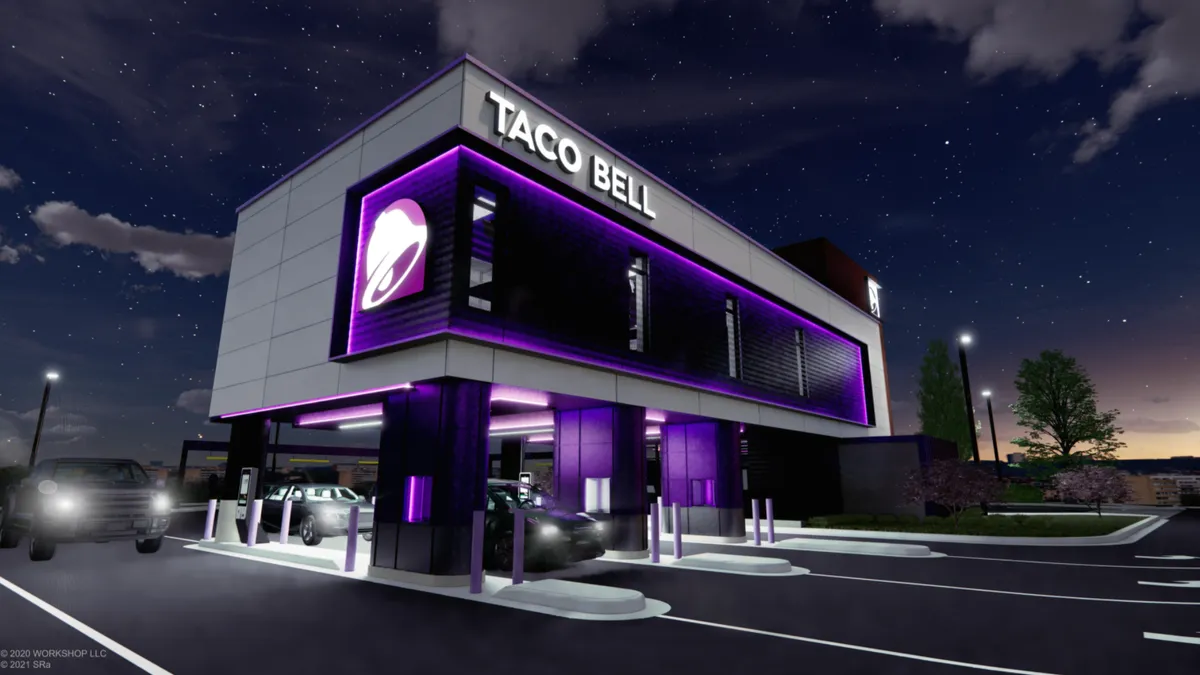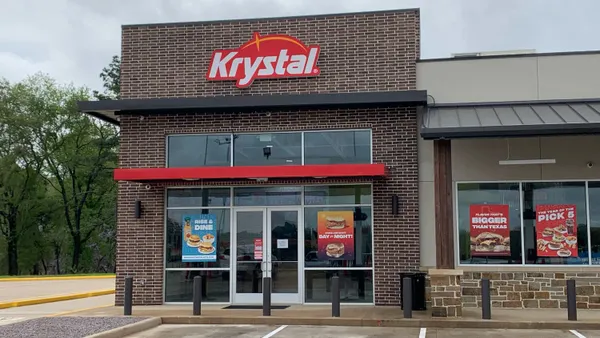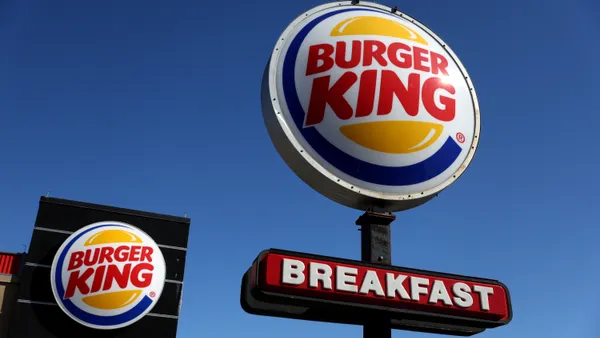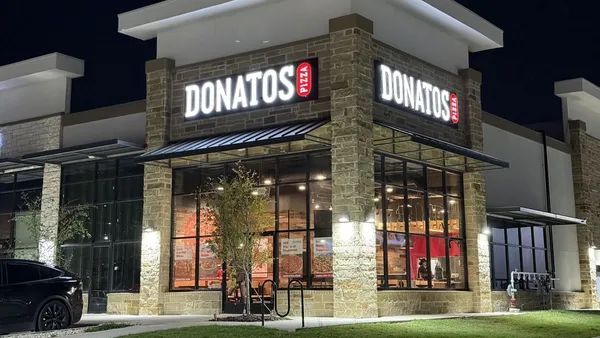UPDATE: Aug. 12, 2021: Taco Bell is set to break ground this month on a new store model, called Taco Bell Defy, in Brooklyn Park, Minnesota, according to a press release emailed to Restaurant Dive. The unit is expected to be open by the summer of 2022. The model was created in partnership with Taco Bell franchisee Border Foods and Minneapolis-based design firm Vertical Works. In addition to four drive-thru lanes, mobile order customers will be able to use digital check-in screens to scan their unique QR codes with their order and then pull forward to have their food delivered through a proprietary lift system. Two-way audio and video will allow customers and team members to react in real time while maintaining a contactless experience.
"In 2015, we created the Taco Bell Cantina concept with an open kitchen environment in urban markets. In 2020, we introduced the Go Mobile concept much earlier than anticipated with the help of quick collaboration with franchisees just like Border Foods," Mike Grams, Taco Bell's president and global COO, said in a statement. "Partnering with our franchisees to test new concepts is a huge unlock of learning for us. What we learn from the test of this new Defy concept may help shape future Taco Bell restaurants."
Dive Brief:
- A Taco Bell franchisee wants to build an experimental, 3,000-square-foot, two-story store model with four drive-thru lanes and no dine-in seating in Brooklyn Park, Minnesota, according to a Brooklyn Park Planning Commission staff report. The restaurant design is "so different that it has never been constructed anywhere before," per the report. The plans were discussed at a Feb. 10 meeting.
- Three of the drive-thru lanes would be situated beneath the second story, with a fourth designated for oversized vehicles situated on the side of the restaurant. One lane will be used for traditional drive-thru service with face-to-face payment and food collection, while the other three lanes will be used for pickup orders placed through the Taco Bell app or via delivery services.
- This futuristic, off-premise focused store design appears to deviate from Taco Bell's Go Mobile store concept plans, which the chain announced last summer. It looks very similar to Burger King's new store design plans, however, which include a suspended kitchen that uses a conveyor belt system to deliver food to three drive-thru lanes, with one dedicated to traditional service, the second to mobile pickup orders and the third to delivery orders.
Dive Insight:
The planned Taco Bell location is nearly double the size of Taco Bell's Go Mobile restaurants — which are slated to be 1,325 square feet — and larger than its traditional stores, which are 2,500 square feet on average. The first floor of the concept will feature an indoor counter for in-person walkup ordering for pickup, as well as a small kitchen to service these orders and orders from the traditional drive-thru lane. Taco Bell did not respond to requests for comment about the Minnesota store design before press time.
The Minnesota store flexes Taco Bell's advantage with decades of drive-thru experience and deep pockets to fuel further enhancements for the channel. Only between 1% and 3% of operators added drive-thru service since the start of the pandemic, though 6% of fast casual operators did, according to the National Restaurant Association's 2021 State of the Industry report. These low percentages likely reflect the steep costs of adding drive-thru, the report states.
According to the franchisee's proposed plans outlined in the planning commission report, groundbreaking and construction could begin on May 16, if approved by the planning commission and city council. When Taco Bell shared its Go Mobile plans last summer, it said two company-owned restaurants would open in Q1 2021. It's possible the Minnesota store is one of the first franchised locations in development.
Efficiency at the drive-thru window could help Taco Bell deepen loyalty with existing customers in its rewards program and convert diners seeking a contactless experience that caters to both traditional ordering and order ahead occasions. Burger King also just launched a loyalty program pilot to integrate with its off-premise channels, and eventually to on-premise touchpoints as well when its out of test phase.














